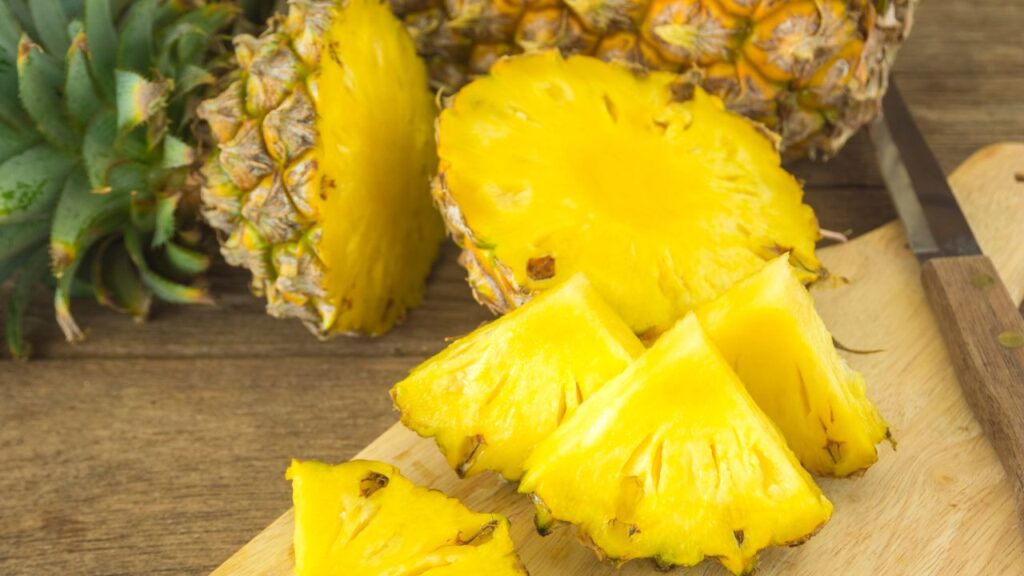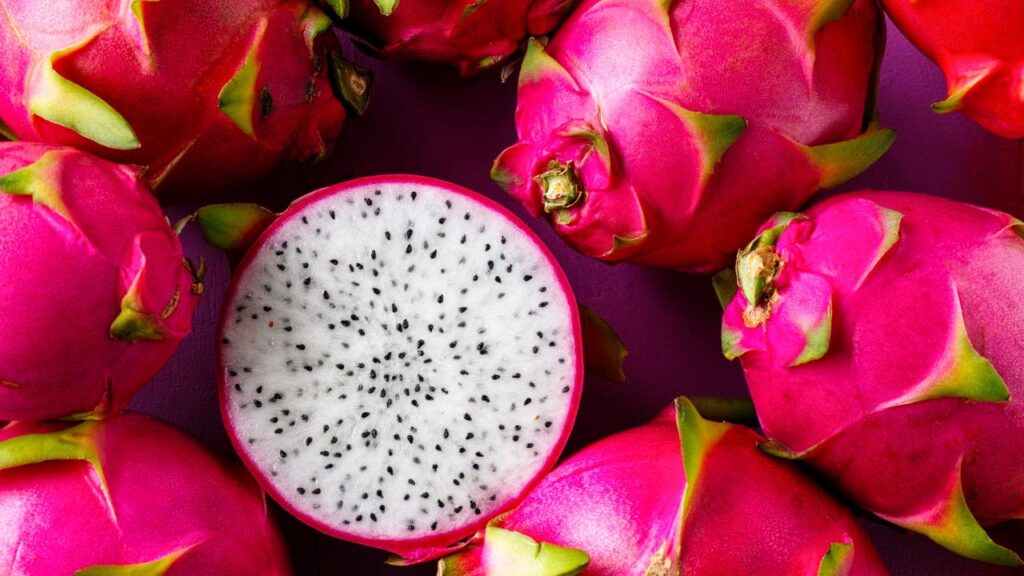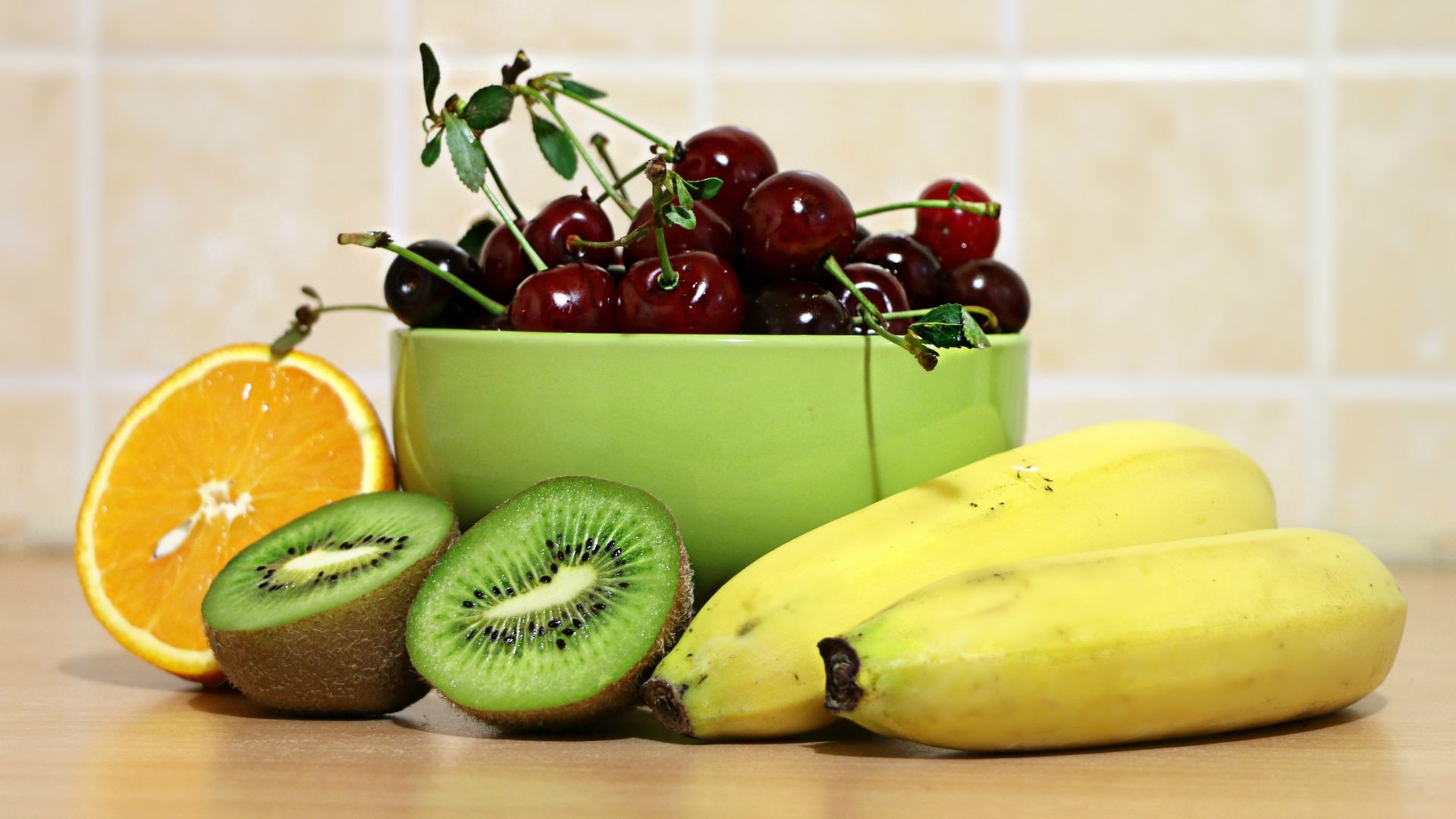Do you find yourself tossing and turning at night, struggling to fall asleep? Then, I’ve got some good news for you that will brighten up your day. What if I told you that something as simple as eating the right fruits for sleep could help? It’s true.
Certain fruits contain natural sleep boosters like melatonin, serotonin, and magnesium. These nutrients help you relax, fall asleep faster, and enjoy deeper sleep. Curious to know more?
If you want to know which are the best fruits for sleep, then stick to the end. Here, I’m discussing them in detail, along with how they work, and how to add them to your nighttime routine.
Fruits for Sleep
We all know that getting a good night’s sleep is important for your body and mind. For this, you can eat fruits, like Kiwis, without any worries. Let’s take a look at some of the best fruits that can improve your sleep quality.
Kiwi

Let’s get real: Kiwi is one of the best fruits for sleep. According to studies, eating two kiwis before bed might make a big difference. This fruit is packed with potassium and antioxidant properties, which all help with overall health. But what makes them special is their ability to help you sleep better.
One reason why kiwi is so good for sleep is its serotonin production. Serotonin is a brain chemical that helps regulate mood and sleep cycles. Since kiwi is a natural source of serotonin, it may help reduce sleep disturbances. That’s why experts recommend kiwifruit consumption to older adults who have trouble sleeping.
Cherries

Note that cherries are known for their high concentration of melatonin. Melatonin is the hormone that tells your body when it’s time to sleep. That’s not it. Not only do cherries help you fall asleep faster, but they also improve restorative sleep. This means you wake up feeling more refreshed and energized.
Important Note: It’s best to eat cherries in their natural state, either as a whole fruit or as juice. Sweet cherries also have some benefits, but tart cherry juice has been found to be the most effective for sleep. This has been backed by clinical nutrition research, which shows that cherries can naturally boost melatonin.
Whether you prefer frozen cherries or fresh ones, adding them to your nighttime routine can be a simple way to sleep better. They’re tasty, easy to eat, and full of nutrients that support a good night’s rest.
Bananas

Let’s start with this: A banana before bed can help you sleep. Why? It’s because they contain amino acids that promote sleep. One of these is tryptophan, which helps the body produce melatonin and serotonin—two key chemicals for sleep. But that’s not all.
Bananas are also good for reducing anxiety, which is a common cause of sleepless nights. The natural sugars in bananas provide a calming effect, making it easier to unwind after a long day. In addition, bananas are rich in magnesium and potassium, which relax muscles and reduce stress. So, if you tend to wake up in the middle of the night, a banana can help you stay asleep longer.
In today’s modern life, stress and poor sleep go hand in hand. Many people struggle with their circadian rhythm, the body’s internal clock. Adding bananas as a part of a balanced diet can support melatonin levels, helping you align with your sleep hormone and get better rest.
Pineapples

Pineapples are another fruit that can help you sleep better. In fact, among foods high in melatonin content, pineapples stand out. Their natural sweetness makes them enjoyable, and their nutrition profile supports better rest.
Studies have also shown that including pineapples in your daily diet can lead to improved sleep quality. This tropical fruit is a potent source of sleep-friendly nutrients, like Tryptophan and Vitamin B6, making it a great choice for those who struggle with falling asleep.
The food composition of pineapples also makes them an excellent nighttime snack. They contain vitamin C, bromelain, and fiber, all of which support digestion and relaxation. Proper digestion before bed can prevent discomfort that disrupts sleep.
Oranges

Getting straight to the point: Oranges are packed with vitamin C, which plays a big role in promoting healthy sleep. Many people don’t realize that low vitamin C levels are linked to restless sleep and waking up frequently during the night. By eating oranges, you can support your immune system and enjoy more restful sleep.
Important Note: If you have trouble falling asleep, you might want to avoid caffeine and sugary beverages before bed. Instead of soda or coffee, try drinking a glass of fresh orange juice or eating a whole orange. The natural sugars in oranges won’t cause energy spikes like processed sugar does, making them a great evening snack.
Oranges also help address folate deficiencies, which can contribute to sleep disorders. Folate is important for brain function and nervous system health, both of which affect sleep. If your diet lacks folate, it can be harder to relax and fall asleep quickly.
Pro tip: I recommend eating oranges alongside other foods rich in sleep-promoting nutrients can lead to better sleep. Whether eaten alone or as part of a bedtime fruit salad, oranges support sleep onset naturally.
Avocados

If you want a good night’s rest, adding avocados to your dinner or evening snack can be a smart choice. Why? Well, all the credit goes to their rich nutrition profile. They are a great source of lean protein, healthy fats, and essential vitamins that help the body wind down for sleep.
Another reason avocados improve sleep is their anti-inflammatory properties. According to research, inflammation in the body can interfere with sleep, making it difficult to rest properly. Eating foods with anti-inflammatory benefits, like avocados and fatty fish, can help calm the body and mind.
That’s not it. There’s a lot more to know if you love eating avocados. Did you know avocados are often included in the Mediterranean diet because they help in getting better sleep? It’s true. Studies have shown that people following a Mediterranean-style diet experience fewer sleep problems and better overall rest.
According to the National Library of Medicine, avocados also contain vitamin D, which is linked to poor sleep quality when levels are low. Ensuring you get enough vitamin D through food sources like avocados can help regulate sleep cycles.
Tart Cherries

Here’s the deal: Tart cherries are widely recognized as a sleeping aid. They contain high amounts of melatonin, which helps us rest better. But there’s more. These cherries also support the body’s circadian rhythm, helping to reset sleep patterns. This is especially helpful for people experiencing jet lag.
For those who enjoy warm drinks before bed, combining tart cherry juice with warm milk can create a soothing bedtime beverage. Moreover, if you’re looking for a healthier alternative to an indulgent Thanksgiving meal, tart cherries make for a great light dessert. It supports better rest without the sluggishness caused by heavy foods, sour cherries, or alcohol intake.
Dragon Fruit

Some people turn to sleeping pills to help with insomnia, but natural solutions like dragon fruit offer a gentler approach. I’m not kidding. Dragon fruit is a lesser-known sleep aid, but it’s a powerhouse of nutrients. Studies in the Asian Pacific Journal suggest that dragon fruit can contribute to better sleep due to its high antioxidant content.
Furthermore, eating dragon fruit may potentially lead to improved melatonin production, making it easier to fall asleep naturally. On top of that, this fruit is also an excellent source of magnesium, which helps relax the muscles and nerves. This ultimately reduces stress and tension before bed.
Quick hack: You can eat dragon fruit with other fruits and vegetables for better health benefits. For a healthier post-dinner treat, you can also try a dragon fruit smoothie instead of a Thanksgiving dinner dessert! Never eat them with heavy meals and fried foods late at night because doing this can disrupt sleep patterns.
Apples

I’m just going to say this: Apples are one of the best fruits for those having difficulty sleeping. They are rich in fiber, antioxidants, and natural sugars that promote a good night’s sleep without causing energy crashes. If you struggle with sleep disruptions, an apple before bed can help regulate blood sugar levels and keep you asleep longer.
Like many fruits and vegetables, apples support the body’s natural sleep-wake cycles. They contain more melatonin than most fruits, which is why they can help you rest better. But that’s not all. Apples are also a great source of amino acids called tryptophan, which promotes relaxation. Amazing, right?
Pomegranate

If you have trouble sleeping, start eating pomegranates for better sleep quality. Why? They contain high levels of antioxidants, like Polyphenols, which help reduce inflammation and support overall health. There’s more. One of the biggest benefits of pomegranates is they help balance hormones that control sleep, making it easier to fall asleep and wake up feeling refreshed.
Tip: If you struggle with falling asleep, try adding pomegranate seeds or juice to your evening routine. The fruit is packed with nutrients that support sleep efficiency, ensuring you spend more time in sleep.
Conclusion
In summary, eating fruits is a natural way to improve your sleep. Kiwi, cherries, and bananas are perfect bedtime snacks. Similarly, avocados and apples help you sleep without any trouble. On top of that, pomegranates naturally balance hormones that affect sleeping.
Instead of relying on sleep aids, try these delicious, nutrient-packed options for a restful night. Remember: Simple dietary changes can help you enjoy quality sleep!
















